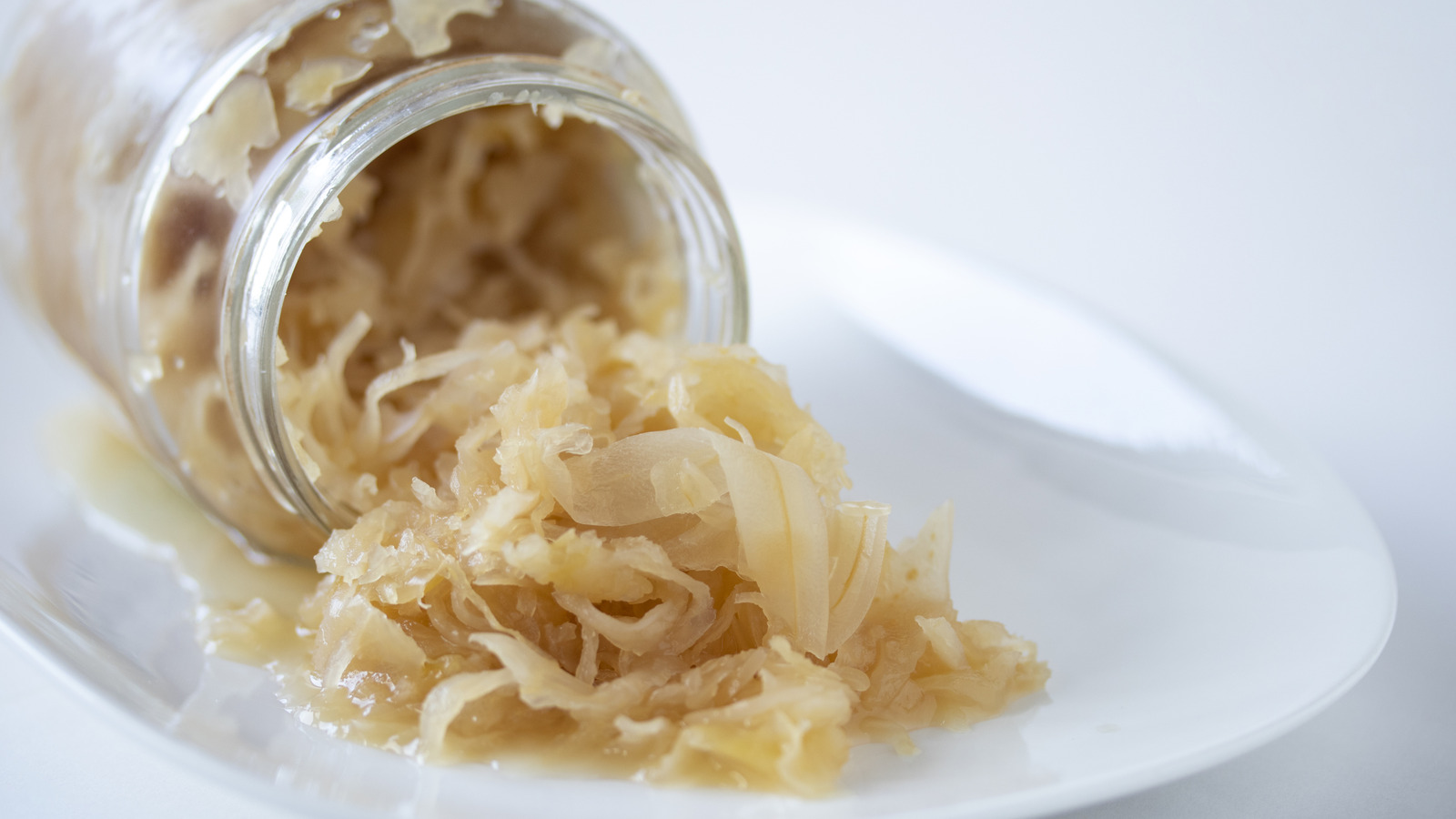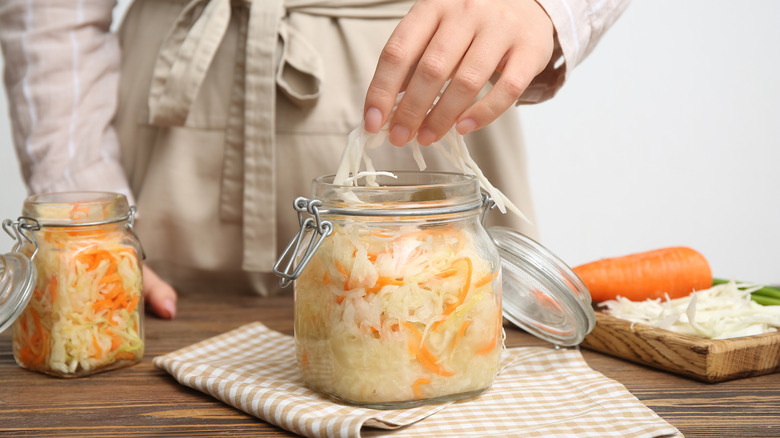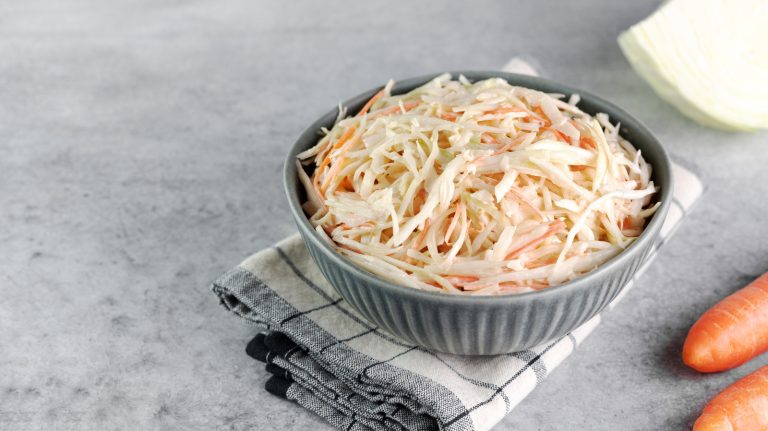You’ve probably been taught all your life that bacteria are the bad guys — the little microorganisms dead set on making you sick or ruining your leftovers. While this may be true, not all bacteria are the bad guys; just look at probiotics. Probiotics are live bacteria that can have positive effects on your gastrointestinal tract or other bodily functions. They’re more prevalent in some foods than others, such as probiotic-filled cottage cheese and yogurts, but you can also spot probiotics in some unexpected places, like pickles or sauerkraut.
While fresh sauerkraut normally contains a healthy dose of probiotics, it’s important to note that canned sauerkraut does not contain nearly as much, if any. Canned sauerkraut is pasteurized, which may be great for extending the savory snack’s shelf life but is bad for the live bacteria that gives sauerkraut its good name (there’s a big difference between the raw and canned sauerkraut). Sauerkraut develops its beneficial probiotics during the fermentation process, since the product is essentially just pickled cabbage. So not only does the canning and pasteurization process kill off healthy bacteria during heating, it also cuts the fermentation time in half, which means the probiotics have less time to develop.
Unpasteurized sauerkraut is the best bet for gut health
Fresh sauerkraut is relatively simple to make at home (here’s our favorite sauerkraut recipe), but if you don’t have time, you can still look for a version at the grocery store that’s full of probiotics. Finding a jar with a label that specifically says “unpasteurized” or “raw” is the only surefire way to know you’re ingesting those billions of healthy probiotics in every bite. Unpasteurized sauerkraut will typically only have three ingredients — water, salt, and cabbage — though you may find variations with shredded carrots or beets. Any can with more than those few ingredients will automatically tell you that the sauerkraut has been pasteurized or processed, which most likely means that the probiotic count has been negatively affected.
The pasteurization process involves using heat treatments to sterilize microorganisms, which is handy for getting rid of the harmful bacteria that cause botulism but also means that helpful bacteria (like probiotics) won’t survive to make it into your gut. Canned sauerkraut can still have other health benefits, like vitamins and fibers, and you might even find a brand that adds lab-grown probiotics back into the product, but it’s not the same as an unpasteurized version. It’s no wonder that our favorite brand in our ranking of seven store-bought sauerkrauts is an unprocessed variety chock full of live probiotic goodness.






